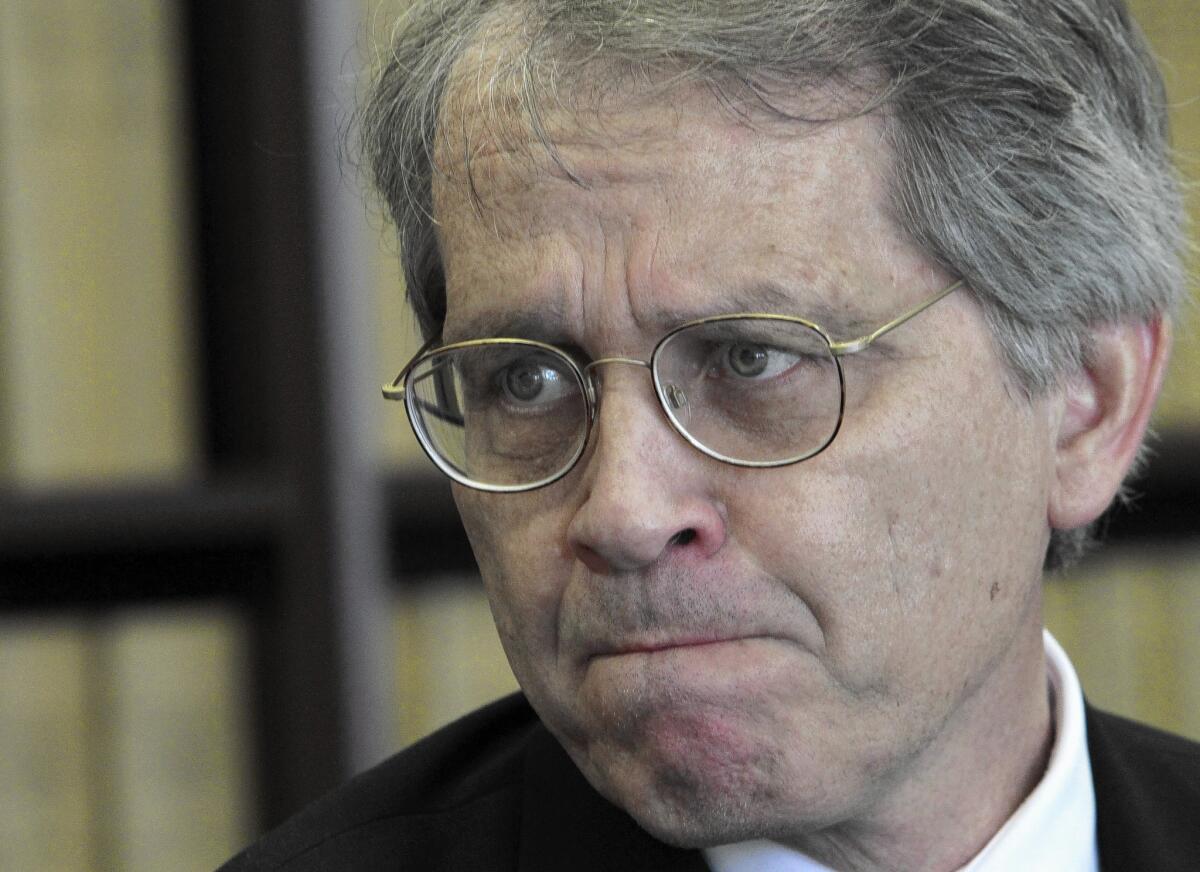Analyst predicts $2.5-billion windfall for California

California’s income will be about $2.5 billion higher than Gov. Jerry Brown predicted in his latest budget, according to the Legislature’s top financial advisor — surprise cash that Democratic lawmakers will almost certainly use to challenge the governor’s call for continued austerity.
The healthier stock market and increasing property values will bring in the higher tax revenue, nonpartisan Legislative Analyst Mac Taylor said in his own projection Friday.
The dueling forecasts could heighten an election-year tussle between a governor preaching fiscal caution and legislative leaders bent on returning more funds to social programs, mental health care and other services decimated by budget cuts during the recession. The Legislature is required to pass a budget by June 15.
In his report, Taylor cautioned that most of the increase would be directed to schools under the state’s education funding law. That would leave “no more than several hundred million dollars” to pay for other programs, pay down debt or set aside in an emergency fund.
Still, the projections were welcomed by Democrats, including Sen. Mark Leno of San Francisco, chairman of the Senate Budget Committee.
“It looks very positive,” Leno said of Taylor’s report. “It certainly adds to our conversation with the governor.”
Brown had said most gains would be absorbed by an unexpected $1.2-billion increase in Medi-Cal costs, spurred in part by an aggressive campaign to sign up Californians for health coverage under the federal Affordable Care Act.
Brown also called for allocating money to address one of the state’s most vexing financial problems, the long-term $73.7-billion shortfall in the teachers pension fund. Brown wants the state to increase deposits into that fund and raise teacher contributions. But the bulk of the money would come from school districts.
“Overall, we think it’s a bold proposal by the governor. We think it’s an appropriate one,” Taylor said. “It’s one that we think deserves the Legislature’s attention to address our single biggest liability that’s out there.”
Underneath all of the complimentary chatter, however, is some tension.
Early this week, Senate leader Darrell Steinberg (D-Sacramento) questioned some of Brown’s priorities, criticizing his devotion to a costly high-speed rail network over programs such as universal preschool.
“It’s time he does a little lifting to meet our priorities,” Steinberg said.
Brown remains in a position of strength, however. The governor has earned high marks in recent voter polls, in part because of his reputation for fiscal restraint, and he faces no major challenger in his bid for an unprecedented fourth term as governor.
Steinberg is a passionate advocate for the needy but has not been a bare-knuckled negotiator, and he will be termed out of office this year, diluting his leverage. Assembly Speaker Toni Atkins (D-San Diego), newly sworn in, faces her first big test in the coming talks.
She offered a muted response to Taylor’s projections.
“The LAO forecast is one more piece of the puzzle as we work to craft a budget that strengthens fiscal stability and expands opportunity by making smart investments,” Atkins said in a statement.
Republicans responded more warmly, although the GOP has little influence in a Legislature strongly dominated by Democrats.
“It is just common sense to follow the smart growth path laid out by the governor to ensure balanced budgets,” said Senate Republican leader Robert Huff of Diamond Bar. “Repeating past mistakes by spending money we just don’t have is unwise….It will be a big mistake by the Democrats if we end up talking about cuts and taxes again so soon after getting another revenue windfall.”
Brown offered the first clue of his stance on budget negotiations earlier this week, when he said the revenue forecast from his finance staff was the most reliable, and “that’s the one I’m living with.”
He coupled his cautious approach with a reminder that California has run budget deficits for 11 of the last 15 years. Trying to forecast revenue is an extremely risky proposition, he added.
“Economists never predict a recession,’’ the governor said.
Last year, the legislative analyst’s office said California would receive $3.2 billion more in revenue than Brown expected. Democratic lawmakers used the report to push for restored spending. But in the end, the governor persuaded the Legislature to go along with his lower estimates.
The legislative analyst’s projections were closer to being correct, however; revenue outpaced even that estimate by billions of dollars.
Assembly Budget Chairwoman Nancy Skinner (D-Berkeley) said in a recent interview that lawmakers will be more resistant this year.
“He tried that once,” she said. “It will be harder to justify.”
Times staff writers Melanie Mason and Chris Megerian contributed to this report.
More to Read
Sign up for Essential California
The most important California stories and recommendations in your inbox every morning.
You may occasionally receive promotional content from the Los Angeles Times.












